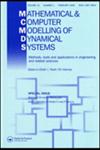利用特征选择技术进行基于土壤和环境特征的作物预测
IF 1.8
4区 数学
Q3 COMPUTER SCIENCE, INTERDISCIPLINARY APPLICATIONS
Mathematical and Computer Modelling of Dynamical Systems
Pub Date : 2021-01-02
DOI:10.1080/13873954.2021.1882505
引用次数: 42
摘要
摘要早些时候,作物种植是在农民动手的专业知识的基础上进行的。然而,气候变化已经开始严重影响作物产量。因此,农民无法根据土壤和环境因素选择合适的作物,而手动预测选择合适作物的过程往往会导致失败。准确的作物预测可以提高作物产量。这就是机器学习在作物预测领域发挥关键作用的地方。作物预测取决于土壤、地理和气候特征。为正确的作物选择适当的属性是特征选择技术进行预测的固有部分。在这项工作中,使用分类技术对作物预测的各种包装特征选择方法进行了比较研究,这些方法提出了适合土地的作物。实验结果表明,采用自适应Bagging分类器的递归特征消除技术优于其他方法。本文章由计算机程序翻译,如有差异,请以英文原文为准。
Crop prediction based on soil and environmental characteristics using feature selection techniques
ABSTRACT Earlier, crop cultivation was undertaken on the basis of farmers’ hands-on expertise. However, climate change has begun to affect crop yields badly. Consequently, farmers are unable to choose the right crop/s based on soil and environmental factors, and the process of manually predicting the choice of the right crop/s of land has, more often than not, resulted in failure. Accurate crop prediction results in increased crop production. This is where machine learning playing a crucial role in the area of crop prediction. Crop prediction depends on the soil, geographic and climatic attributes. Selecting appropriate attributes for the right crop/s is an intrinsic part of the prediction undertaken by feature selection techniques. In this work, a comparative study of various wrapper feature selection methods are carried out for crop prediction using classification techniques that suggest the suitable crop/s for land. The experimental results show the Recursive Feature Elimination technique with the Adaptive Bagging classifier outperforms the others.
求助全文
通过发布文献求助,成功后即可免费获取论文全文。
去求助
来源期刊
CiteScore
3.80
自引率
5.30%
发文量
7
审稿时长
>12 weeks
期刊介绍:
Mathematical and Computer Modelling of Dynamical Systems (MCMDS) publishes high quality international research that presents new ideas and approaches in the derivation, simplification, and validation of models and sub-models of relevance to complex (real-world) dynamical systems.
The journal brings together engineers and scientists working in different areas of application and/or theory where researchers can learn about recent developments across engineering, environmental systems, and biotechnology amongst other fields. As MCMDS covers a wide range of application areas, papers aim to be accessible to readers who are not necessarily experts in the specific area of application.
MCMDS welcomes original articles on a range of topics including:
-methods of modelling and simulation-
automation of modelling-
qualitative and modular modelling-
data-based and learning-based modelling-
uncertainties and the effects of modelling errors on system performance-
application of modelling to complex real-world systems.

 求助内容:
求助内容: 应助结果提醒方式:
应助结果提醒方式:


